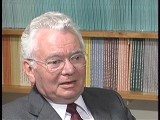You searched for: Memorial%20University%20of%20Newfoundland%EF%BF%BD%EF%BF%BD%EF%BF%BD%EF%BF%BD%EF%BF%BD%EF%BF%BD%EF%BF%BD%EF%BF%BD%EF%BF%BD%EF%BF%BD%EF%BF%BD%EF%BF%BD%EF%BF%BD%EF%BF%BD%EF%BF%BD%EF%BF%BD%EF%BF%BD%EF%BF%BD%EF%BF%BD%EF%BF%BD%EF%BF%BD%EF%BF%BD%EF%BF%BD%EF%BF%BDWeChat%EF%BF%BD%EF%BF%BD%EF%BF%BDKAA2238%EF%BF%BD%EF%BF%BD%EF%BF%BDOEA2Lj
<< Previous | Displaying results 291-300 of 338 for "Memorial%20University%20of%20Newfoundland%EF%BF%BD%EF%BF%BD%EF%BF%BD%EF%BF%BD%EF%BF%BD%EF%BF%BD%EF%BF%BD%EF%BF%BD%EF%BF%BD%EF%BF%BD%EF%BF%BD%EF%BF%BD%EF%BF%BD%EF%BF%BD%EF%BF%BD%EF%BF%BD%EF%BF%BD%EF%BF%BD%EF%BF%BD%EF%BF%BD%EF%BF%BD%EF%BF%BD%EF%BF%BD%EF%BF%BDWeChat%EF%BF%BD%EF%BF%BD%EF%BF%BDKAA2238%EF%BF%BD%EF%BF%BD%EF%BF%BDOEA2Lj" | Next >>
-
David Bayer
ArticleDavid Bayer lived in Kozienice, Poland. Explore his biography and learn about his experiences during World War II and the Holocaust.
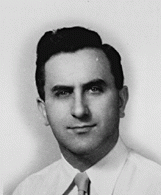
-
Holocaust Denial: Key Dates
ArticleBrowse a timeline listing some key events in the evolution of Holocaust denial and the distortion of the facts of the Holocaust.
-
Life After the Holocaust: Regina Gelb
ArticleAfter WWII and the fall of the Nazi regime, Holocaust survivors faced the daunting task of rebuilding their lives. Listen to Regina Gelb's story.
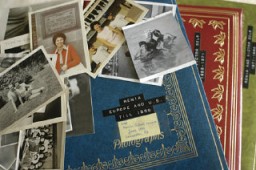
-
Manya Moszkowicz
ID CardManya was born in Chmielnik, a small Polish town that had a Jewish community dating back to the 16th century. Her father owned a furniture shop and her mother took care of the home. Manya had two younger brothers, David and Mordechai, and was surrounded by many close relatives. She attended both public and Hebrew schools and had many friends. 1933–39: In 1938 Manya's family moved to Sosnowiec, a larger city located near the German border. There she had her first experience with antisemitism. Signs…
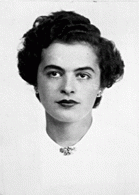
-
Ruth Berkowicz Segal describes journey to and arrival in Japan
Oral HistoryWhen German forces invaded Poland in September 1939, Ruth's father fled to eastern Poland. Upon the Soviet occupation of eastern Poland, he fled to Lithuania. Ruth left Warsaw with two friends to find her father and later joined him in Vilna. After Soviet forces occupied Lithuania, Ruth and her father obtained transit visas for Japan, but only Ruth obtained a Soviet exit visa. Her father insisted she leave and not wait for him. Ruth traveled by the Trans-Siberian Railroad across the Soviet Union to…
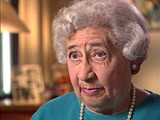
-
Ruth Meyerowitz describes surviving a selection for the gas chamber
Oral HistoryIn Frankfurt, Ruth's family faced intensifying anti-Jewish measures; her father's business was taken over and Ruth's Jewish school was closed. In April 1943, Ruth and her family were deported to Auschwitz. Ruth was selected for forced labor and assigned to work on road repairs. She also worked in the "Kanada" unit, sorting possessions brought into the camp. In November 1944, Ruth was transferred to the Ravensbrueck camp system, in Germany. She was liberated in May 1945, during a death march from the…
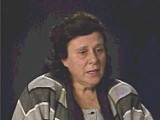
-
Ruth Webber describes her mother's efforts to ensure her children's survival
Oral HistoryRuth was four years old when the Germans invaded Poland and occupied Ostrowiec. Her family was forced into a ghetto. Germans took over her father's photography business, although he was allowed to continue working outside the ghetto. Before the ghetto was liquidated, Ruth's parents sent her sister into hiding, and managed to get work at a labor camp outside the ghetto. Ruth also went into hiding, either in nearby woods or within the camp itself. When the camp was liquidated, Ruth's parents were split up.…
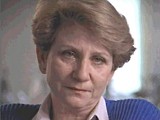
-
Leo Melamed describes saying goodbye to father as he fled Bialystok
Oral HistoryLeo was seven years old when Germany invaded Poland in September 1939. Before the war, Leo's father was a mathematics teacher and member of the Bialystok City Council. Fearing arrest, Leo's father fled Bialystok for Vilna just before the German occupation. Leo and his mother eventually joined his father in Vilna. After the Soviets occupied Vilna, Leo's father obtained transit visas to Japan. The family left Vilna in December 1940, traveled across the Soviet Union on the Trans-Siberian Express, and arrived…
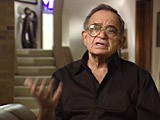
-
US veteran Ross Snowdon describes the camp quarry and barracks and the burial of the dead in Mauthausen
Oral HistoryRoss Snowdon is a veteran of the 11th Armored Division. During the invasion of German-held Austria, in May 1945 the 11th Armored (the "Thunderbolt" division) overran two of the largest Nazi concentration camps in the country: Mauthausen and Gusen.
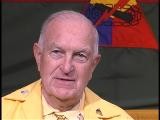
-
Thomas Buergenthal describes the charges brought at the International Military Tribunal at Nuremberg
Oral HistoryJudge Thomas Buergenthal was one of the youngest survivors of the Auschwitz and Sachsenhausen concentration camps. He immigrated to the United States at the age of 17. Judge Buergenthal devoted his life to international and human rights law. He served as chairman of the United States Holocaust Memorial Museum’s Committee on Conscience; was named the Lobingier Professor of Comparative Law and Jurisprudence at the George Washington University Law School; and served for a decade as the American judge at…
